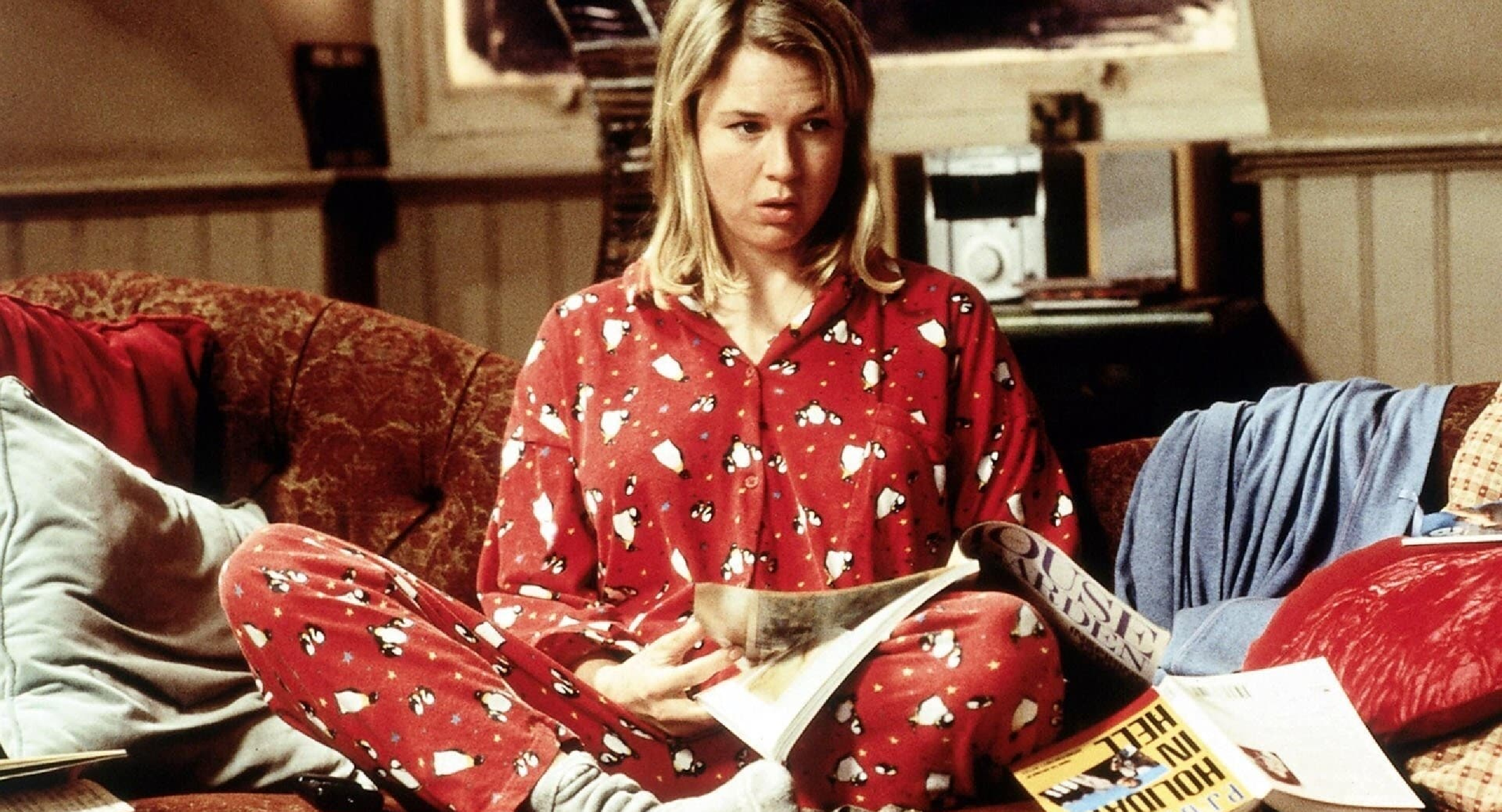Bridget Jones’s Diary – Film Review
Published August 11, 2023

At the start of the New Year, 32-year-old Bridget decides it’s time to take control of her life — and start keeping a diary. Now, the most provocative, erotic and hysterical book on her bedside table is the one she’s writing. With a taste for adventure, and an opinion on every subject – from exercise to men to food to sex and everything in between – she’s turning the page on a whole new life.
Released in 2001 and directed by Sharon Maguire, Bridget Jones’s Diary is a charming romantic comedy that offers a fresh take on modern relationships while providing an endearing portrayal of a relatable, imperfect protagonist. Adapted from Helen Fielding‘s novel of the same name, the film combines elements of romance, humor, and self-discovery to create an entertaining and relatable experience for its audience. With its witty writing, captivating performances, and well-executed direction, Bridget Jones’s Diary stands as a memorable addition to the romantic comedy genre.
The film revolves around Bridget Jones (Renée Zellweger), a thirty-two-year-old single woman living in London who navigates the ups and downs of her love life while grappling with her career and personal insecurities. The plot unfolds through the lens of Bridget’s diary, allowing the audience to intimately connect with her thoughts and emotions. This narrative device effectively draws viewers into her world, making them empathize with her relatable struggles.
Bridget’s character development is a highlight of the film. Her relatability lies in her flaws and imperfections, making her a refreshing departure from the stereotypical romantic comedy lead. Zellweger’s performance is exceptional, capturing Bridget’s vulnerability and comedic timing. The audience witnesses her transformation from a self-conscious singleton to a woman who embraces her quirks and stands up for herself. The journey is not only heartwarming but also inspiring, as Bridget’s growth is a reminder that imperfections are what make us human.
One of the film’s strongest attributes is its impeccable balance of humor and wit. The screenplay by Helen Fielding, Andrew Davies, and Richard Curtis blends clever one-liners with situational comedy, resulting in genuine laughter. Bridget’s mishaps, including her disastrous attempts at cooking and her embarrassing public declarations, provide moments of lightheartedness that resonate with anyone who has faced similar awkward situations. Additionally, the film’s supporting characters, such as the endearing but blunt Mark Darcy (Colin Firth) and the charismatic Daniel Cleaver (Hugh Grant), inject their own brand of humor into the story.
The romantic dynamics in Bridget Jones’s Diary are intricate and engaging. The central love triangle between Bridget, Mark, and Daniel creates both comedic and emotional tension. Mark Darcy’s reserved demeanor and Daniel Cleaver’s playboy charm create a contrast that adds depth to Bridget’s dilemma. The film examines the complexities of attraction, highlighting the differences between superficial infatuation and genuine emotional connection.
While the romantic plotline may adhere to some genre conventions, the film is able to subvert expectations and offer genuine surprises. The climax is particularly satisfying, allowing Bridget to make a choice that aligns with her personal growth. This empowerment is a refreshing departure from traditional romantic comedies, where the protagonist’s happiness is often contingent on a romantic partner.
Sharon Maguire’s direction brings a distinct authenticity to the film. Her intimate understanding of Bridget’s character and the source material’s nuances is evident throughout. The choice to use Bridget’s diary as a narrative device not only keeps the story engaging but also allows for creative visual storytelling. The incorporation of on-screen text, animations, and voiceovers from Bridget’s diary entries enhances the film’s unique charm.
The cinematography by Stuart Dryburgh captures the vibrancy of London and the intimacy of Bridget’s world. The use of warm tones and natural lighting creates a cozy atmosphere that complements the film’s comedic and romantic moments. The visual contrast between Bridget’s more chaotic scenes and the composed elegance of Mark’s character adds depth to their interactions.
The soundtrack of Bridget Jones’s Diary plays a significant role in setting the film’s tone. The eclectic mix of contemporary and classic songs enhances emotional moments and adds to the overall atmosphere. Tracks like “All by Myself” by Jamie O’Neal and “It’s Raining Men” by Geri Halliwell are well-placed, capturing Bridget’s emotional highs and lows while providing nostalgic nods to the era.
Bridget Jones’s Diary is a delightful blend of romance, humor, and self-discovery that manages to stand out in the romantic comedy genre. Sharon Maguire’s skillful direction, combined with the outstanding performances of the cast, particularly Renée Zellweger, Colin Firth, and Hugh Grant, create a relatable and endearing experience for the audience. The film’s exploration of love, self-acceptance, and personal growth, coupled with its witty writing and charming visuals, make it a timeless addition to the world of romantic comedies. Bridget Jones’s Diary reminds us that imperfections are what make us human, and its enduring appeal lies in its ability to resonate with audiences of all walks of life.
